Teaching courses and training

Teaching courses
UTC aims to prepare its students to become actors in socio-technical innovation for the ecological transition towards sustainable development (ETSD). Thanks to its à la carte teaching model, it offers each student the opportunity to build a coherent and personalised course of study that includes these new skills. Different teaching methods are offered to achieve this, and the range is gradually being expanded in line with the school's overarching project and ambitions.
Sept. 2022 | What place for sustainable development ?: Etienne Arnoult, director of training and pedagogy, and Antoine Jouglet, responsible for the common core, answer this question.
A baseline course
All newcomers to UTC undergo interdisciplinary teaching designed to enable them to acquire the 'core' knowledge and skills relating to TEDS.
The first part of this course presents the current situation, the systemic nature of global changes (climate change, collapse of biodiversitý, depletion of resources, consequences of pollution, energy crises…).
The second part addresses the issues of the role of humans, engineers and businesses.
Action scenarios and their evaluation are discussed in the third part.
This teaching is designed as a cross-disciplinary foundation which can then be used to develop a personalised TEDS pathway.
Another original feature of this 'core' programme is that it is partly run by students who have already received training.
Sept. 2023 | Introduction to environmental issues for the UTC engineer: Presentation of the CC intended for all new TC (common core) students. Led by lecturers from all specialities and by students with experience in the subject, this teaching module is developed in several stages: participation in the “climate mural”, lectures and exchanges during regulation time to analyse the knowledge acquired and that to be developed.
Personalised study path
SISTER (French acronym for Soutainability et Socio-Technical, Eco-Responsible Innovation) is the first personalised course on the theme of sustainable development to be opened at UTC, in 2020. It is a minor, in other words a path that the student builds (with guidance) within a set of humanities and social sciences courses on the theme. Its aim is to develop a reflection on sustainability based on an approach that closely links technologies and societal implications.
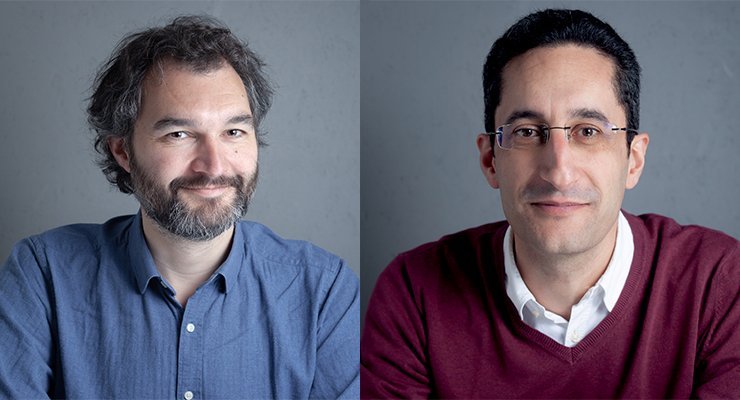
Pedagogical innovations & Sustainable development
Issues related to sustainable development were not absent from teaching at UTC. The ‘SD Reset’ minor was created in 2012. Since then, the need to go further has arisen with the creation, in 2022, of the compulsory CC for all first-year IS 00 students and the ‘Ingénierie Soutenable’ (Sustainable Engineering) label, which cuts across the 5 majors’ branches of UTC.
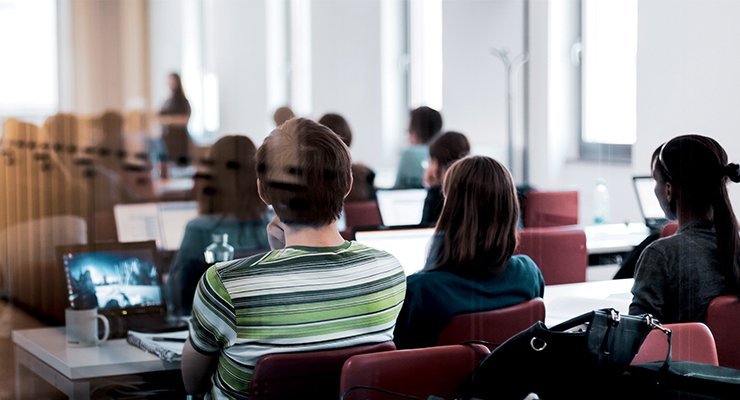
Low-technicisation at the core of a new CC at UTC
Low-technicisation and digital practice. This CC was created in the context of the label ‘Sustainable Engineering’ at UTC. The objective is to provide students with tools on current environmental and social issues in order to have input keys to better understand the ecological situation and to be able to take action in their profession.
Since September 2021, another pathway has enabled students to obtain a 'sustainable engineering' label (included in the graduate’s diploma supplement). It is based on an approach developed by a group of students and teachers ("collective for sustainable engineering), which is defined by three principles: "the systemic approach and modelling, the low-technology approach, and critical reflection on our own cultures". Students choose from courses identified as incorporating these principles and produce a portfolio in order to obtain the label.
Sept. 2021 | Presentation of the Sustainable Engineering label: students who have followed this course module will be able not only to contribute to the necessary transformation of companies, but also to join organisations dedicated to the ecological transition or to create new activities in line with the challenges of sustainability.
Finally, students also have the opportunity to build modular pathways based on the range of courses offered on the TEDS theme, either within the branches or via free inter-branch pathways, built on the basis of a professional project.
The range of courses offered by the different branches and streams of UTC is constantly evolving so that students can acquire the knowledge, skills, critical thinking and adaptability that will enable them to face the challenges of the ecological transition and the transformations of the professions.
Project oriented pedagogy
Project-based teaching is a favoured teaching method at the UTC, particularly for mobilising knowledge and developing and demonstrating the acquisition of skills. This method concerns all the disciplines taught at the UTC.
Numerous variations of this pedagogy are offered to students on the TEDS theme, through project workshops, laboratory work made accessible to students, workshop realisations (notably in a Fablab) and "summer school" type activities.
Several examples de projects and API (application programming interfaces
- Process life cycle analysis (LCA )applied to processes ;
- Intensive intersemester seminar on sustainable development & technology;
- Low-tech alternatives;
- Low-technicisation and digitisation ;
- Serious games on sustainable innovation;
- Reflection on sustainable practices in the field of health research and engineering;
- …
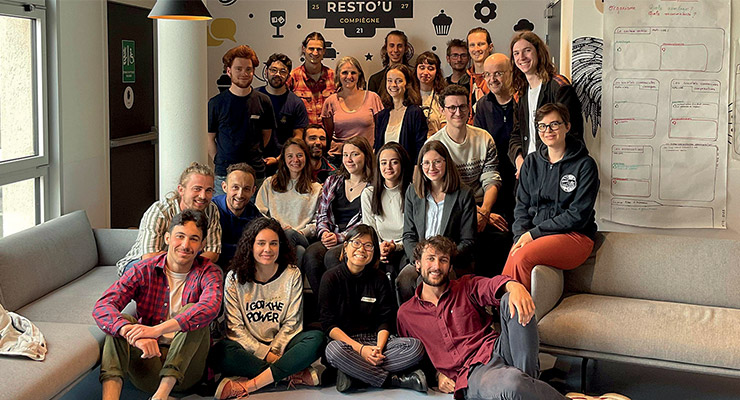
A commitment to the environment
From the outset, UTC-Compiegne has distinguished itself by promoting curricula including the human and social sciences. Its aim is to train ‘humanist engineers’.
A research project on the environmental commitment of engineers has been set up with the support of the UTC’s research department and in partnership with Antoine Bouzin, a doctoral student registered at Bordeaux University.
Janv. 2021 | RDV biomédical – sustainable development for hospital sterile medical devices : A pioneer and leader in the training of players in the biomedical sector in France, UTC-Compiegne is at the origin of the profession of biomedical engineer, whether in the hospitals or in industry.
Several examples of realisations
- Construction of a plastic grinder and design of an injection moulding machine;
- Manufacture of a dew recovery column;
- Design of a pilot process for the recovery of bio-waste generated on the UTC campus;
- …

UTC students with Tenneco & Co working for the Planet’s future
Tenneco is an American automotive equipment supplier based in Crépy-en-Valois since 1933. For several months, the company hosted a group of students from the UTC who were able to reflect on concrete actions to improve industrial performance, taking into account the environmental challenges of the Picardy-based company.

Master Erasmus Mundus degrees and associate teaching chairs
Master Erasmus Mundus EPOG+
Le master conjoint Erasmus Mundus (MCEM) EPOG+ (Politiques économiques pour la transition globale), dirigé par David Flacher, Maître de conférences et professeur au laboratoire Costech, et soutenu par l’Union européenne, propose un programme sur les processus de transition (numérique, socio-économique, écologique) selon une approche en économie complétée par des perspectives interdisciplinaires.
L’objectif principal est de former des experts internationaux, capables de définir et d’évaluer les politiques économiques et d’évoluer dans les différents contextes politiques, sociaux, régionaux et internationaux.

The economist UTC engineer
Discovering and becoming your real self, honing your new-found potential, revealing yourself as a future professional; these are the leitmotifs of Compiègne University of Technology when it comes to defining the path of its students. With five specialties and twenty or so courses, students are “spoilt” when it comes to building their professional project. But some decide to venture down more winding paths and find their own way. This is the case of Matthieu Bordenave, 24 years old, freshly graduated from UTC and on his way to a career as an economist.

Master Erasmus Mundus EMSSE
The joint Erasmus Mundus Master's degree programme (MCEM) EPOG+ (Economic Policies for Global Transition), directed by David Flacher, Senior Lecturer and Professor at the UTC-Costech laboratory, and supported by the European Union, offers a programme on transition processes (digital, socio-economic, ecological) using an economics oriented approach complemented by interdisciplinary perspectives.
The main objective is to train international experts capable of defining and evaluating economic policies and operating in different political, social, regional and international contexts.

Chaire Erasmus+ Jean Monnet
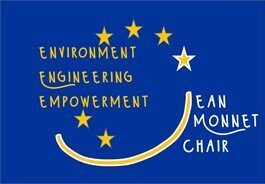
Professor Martin Morgeneyer has been awarded the Jean Monnet Chair for UTC, which focuses on the ecological transition and the role of engineering and the European Union in facilitating it. This chair will enable new teaching content to be developed around the European Union's policy on sustainable development and the important role that our engineers play in this policy.
From now on, the environmental transition will have to be carried out all at once, as part of an overall project. Its practical realisation depends, on the one hand, on the effective and efficient implementation of policies on a continental and global scale and, on the other, on technological know-how. European engineers must play a central role in this process. The Jean Monnet Chair 'Empowering Europe, Environment, Engineering' at the UTC was created to prepare not only our graduates but also our fellow citizens for the challenge of technologically implementing the environmental transition.
Jean Monnet Chairs aim to provide in-depth teaching on European studies as part of the official curriculum of a higher education establishment, as well as in-depth teaching on European issues in fields that are increasingly in demand on the job market.

UTC staff training
Enhanced awareness workhops
By 2022–2023, 20% of staff will have attended an awareness-raising workshop. The workshops currently on offer are the "Big conf.", the "Fresque du climat" and the "2 tonne workshop".
The plan is to extend the range of workshops to include the following themes:
- digital responsibility ;
- biodiversity ;
- sustainable mobility.
Juil. 2022 | What is the aim of this seminar on environmental issues? In the summer of 2022, the French UT group organised the first edition of a 2‑day training course for its staff (teachers, researchers, administrative staff) to examine together the technological posture of the four UTs (UTC, UTBM, UTT and UTSEUS, Shanghai) in the face of current and future socio-ecological challenges. The course looked at low-tech, the career prospects of graduates, changes in socio-economic sectors, the role and impact of digital technology, our relationship with the living world, and the changing role of engineers, teachers and researchers.
Projects for innovative teaching methods
The ET-LIOS project offers teaching courses on the theme of the competitive and sustainable industry of the future. It includes a "sustainable and responsible engineering" module designed to train higher education teachers to integrate socio-ecological issues into their teaching. It offers open source teaching materials.

Hybrid training: educational innovation
The ET-LIOS project, an acronym for «Enseignements Technologiques de niveau LIcence Ouverts pour une industrie du futur compétitive et Soutenable» [First Degree level Technology-intensive training for competitive & sustainable industry] is a project of ‘hybridization’ of higher education courses dedicated to ‘Industry of the Future’.

Conferences
UTC-Compiegne welcomes personalities and organises conferences for students and teacher-researchers on themes linked to sustainable development.
A number of conferences are planned in the near future.
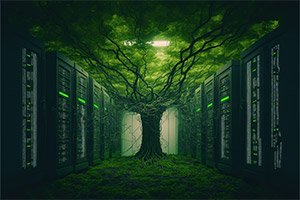
Octobre 2023 : "La tech au secours de la planète ?", par Philippe Bihouix.
Philippe Bihouix, Directeur général de l’AREP, Agence de conception pluridisciplinaire engagée pour la transition écologique, filiale du groupe SNCF Gares & Connexions. Philippe Bihouix qui nous fait l’honneur de venir à l’UTC animer cette conférence a travaillé comme ingénieur-conseil et dirigeant dans différents secteurs industriels, comme les transports, l’énergie et la construction. Depuis plus de 15 ans, il explore les enjeux liés à la transition énergétique, à la consommation de ressources non renouvelables et aux enjeux technologiques associés, notamment à travers des ouvrages comme « L’Âge des low tech. Vers une civilisation techniquement soutenable » (Le Seuil, 2014) et « Le bonheur était pour demain. Les rêveries d’un ingénieur solitaire » (Le Seuil, 2019).

Novembre 2023 : Conférence sur le thème de la biodiversité (titre à venir), par Bruno David.
Bruno David, paléontologue, biologiste marin et ancien président du Museum national d'histoire naturelle, conduit des recherches sur l’évolution de la biodiversité. Il a publié en 2021 un ouvrage intitulé « À l'aube de la 6ème extinction : Comment habiter la Terre ».
Graduate actions
Our graduates are committed!
